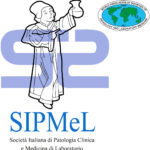
When myasthenia gravis is suspected, specific autoantibodies (AChR, MuSK, Lrp4) should not be searched as a profile, but the initial test is represented only by anti-AchR antibodies.
Since the three autoantibodies are mutually exclusive, it is not useful to simultaneously request the determination of all three antibodies, because about 80% of patients with myasthenia have only anti-AChR, 16% only anti-MuSK and the remaining 4% only anti-Lrp4 antibodies. The determination of anti-Musk antibodies should then be reserved for anti-AChR negative patients, while that of anti-Lrp4 antibodies should be limited to anti-AChR and anti-MuSK negative patients.
Sources
1. Leite MI, Waters P, Vincent A. Diagnostic use of autoantibodies in myasthenia gravis. Autoimmunity 2010; 43:371-9. doi: 10.3109/08916930903541208.
2. Evoli A. Myasthenia gravis: new developments in research and treatment. Curr Opin Neurol 2017; 30:464-70. doi: 10.1097/WCO.0000000000000473.
3. Gilhus NE. Myasthenia gravis. N Engl J Med 2016; 375:2570-81. doi: 10.1056/NEJMra1602678.
4. Zisimopoulou P, Evangelakou P, Tzartos J, et al. A comprehensive analysis of the epidemiology and clinical characteristics of anti-LRP4 in myasthenia gravis. J Autoimmun 2014; 52:139-45. doi: 10.1016/j.jaut.2013.12.004.
5. Spagni G, Gastaldi M, Businaro P, et al. Comparison of fixed and live cell-based assay for the detection of AChR and MuSK antibodies in myasthenia gravis. Neurol Neuroimmunol Neuroinflamm 2022; 10:e200038. doi: 10.1212/NXI.0000000000200038.
Download
PDFAttention. Please note that these items are provided only for information and are not intended as a substitute for consultation with a clinician. Patients with any specific questions about the items on this list or their individual situation should consult their clinician.


Recent Comments